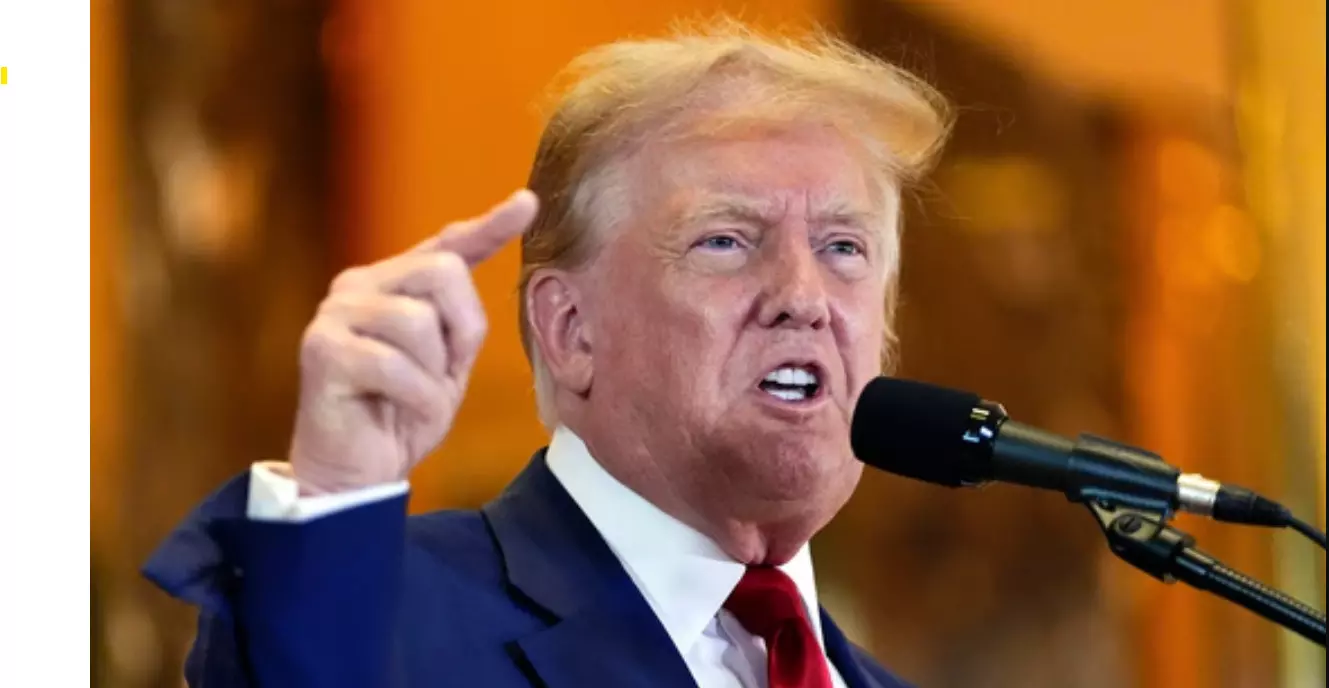A tale of shifting shadows
Trump's tariff threats against BRICS nations reveal the transactional core of international relations, where strategic alliances are affected by economic calculations and the consistent need for diplomatic balance

“The friendship of kings is like the shadow on a sundial; it appears vast at certain hours, but it moves with the sun”. This adage holds particularly true in the realm of international relations, where emotions find no footing. How swiftly that shadow can shrink! Just ask the millions of Indians who were recently basking in the warm glow of Trump's "I love India" declarations, only to find themselves standing in the unexpected shade of a 100 per cent tariff threat. The warmth of friendship was suddenly chilled by the cold calculations of commerce. The Indian diaspora's WhatsApp groups, which were buzzing with jubilant forwards about Trump's potential return just weeks ago, may now experience what we might call a "digital dharna" of disbelief.
Donald Trump's recent threat to impose 100 per cent tariffs on BRICS nations, including India, over de-dollarisation efforts, reveals the complex underpinnings of international relations. The India-US relationship has always been marketed as a strategic bromance, complete with stadium-filling rallies and warm embraces. But beneath the carefully choreographed photo-ops lies a complex dance of interests, where every step forward in defence cooperation might mean two steps back in trade negotiations. The BRICS nations are discovering that in Trump's diplomatic playbook, every handshake comes with a calculator, and every "I love your country" speech carries an asterisk pointing to terms and conditions in fine print.
When it comes to de-dollarisation—that ambitious move by BRICS nations to reduce their dependence on the American greenback—Trump's reaction reveals how quickly diplomatic niceties can evaporate when the dollar's throne is threatened. It's like watching a carefully constructed Jenga tower of bilateral relations wobble when someone dares to pull at the wrong block.
In the high-stakes restaurant of global politics, Trump's diplomatic menu comes with hidden costs, and his "special friendship rates" fluctuate more dramatically than Mumbai's stock market during budget week. One moment he's serving up promises of unprecedented cooperation, garnished with praise for India's tech prowess; the next, he's dishing out tariff threats that could give even the most seasoned diplomats economic indigestion.
In this grand theatre of international relations, India finds itself playing multiple roles simultaneously—a strategic partner in the Indo-Pacific chess game, a growing economic powerhouse seeking autonomy, and a bridge between the developing and developed worlds. It's a performance that requires the flexibility of a Kathak dancer and the strategic mind of a grandmaster, all while maintaining the poker face of a seasoned diplomat.
The reality is more textured than any WhatsApp forward can capture. Each nation, including the mighty USA, operates like a shrewd trader, always calculating, always negotiating, always looking for the best deal. The US’ determination to maintain the dollar's supremacy remains as non-negotiable as a mother's recipe for garam masala—it's just not up for discussion. Yet, like the evolving tastes of a new generation, the global financial order too seems ripe for some new Flavors.
The BRICS alliance, meanwhile, finds itself in an interesting position. Like five friends planning a group vacation, they share a common destination (economic autonomy) but have different ideas about how to get there. India's approach to de-dollarisation has been like a careful chess player—strategic moves, calculated risks, and always keeping an eye on the entire board. Trump's tariff threats, in this context, feel like someone trying to flip the chessboard altogether.
As we navigate this shifting landscape, success lies not in choosing sides but in mastering the art of balance—like a skilled tightrope walker crossing the chasm between sovereignty and interdependence. The future isn't about replacing one currency's dominance with another; it's about creating a financial system as diverse and resilient as India's own cultural tapestry. It's about understanding that global finance, like a well-prepared thali, works best when it offers variety and choice.
For India, this moment calls for the wisdom of the ancient Indian saying "vidura niti"—practical statecraft that recognizes fair-weather friends from all-season allies. It's about maintaining relationships with clear eyes and steady hands, understanding that in international relations, like in life, there are no permanent friends or enemies, only permanent interests. The challenge lies in balancing these interests while keeping one's diplomatic dignity intact—no small feat in a world where tweets can trigger trade wars.
The path forward isn't about abandoning old allies for new ones but about crafting a more nuanced approach to international partnerships. It's about recognising that while Trump's "I love India" might sound sweet, it's the fine print that deserves our attention. After all, in the grand bazaar of global politics, the wisest traders are those who read beyond the promotional banners to understand the true cost of the deal. As India continues its rise on the global stage, it must remember that in the world of international relations, like in a game of cards, it's not just about the hand you're dealt, but how skilfully you play it. One can sum up “Trump's love for India is like a monsoon forecast—promising on paper, but you'd still be wise to carry an umbrella.”
The writer is a Media Professional and writes on culture and diplomacy. Views expressed are personal



